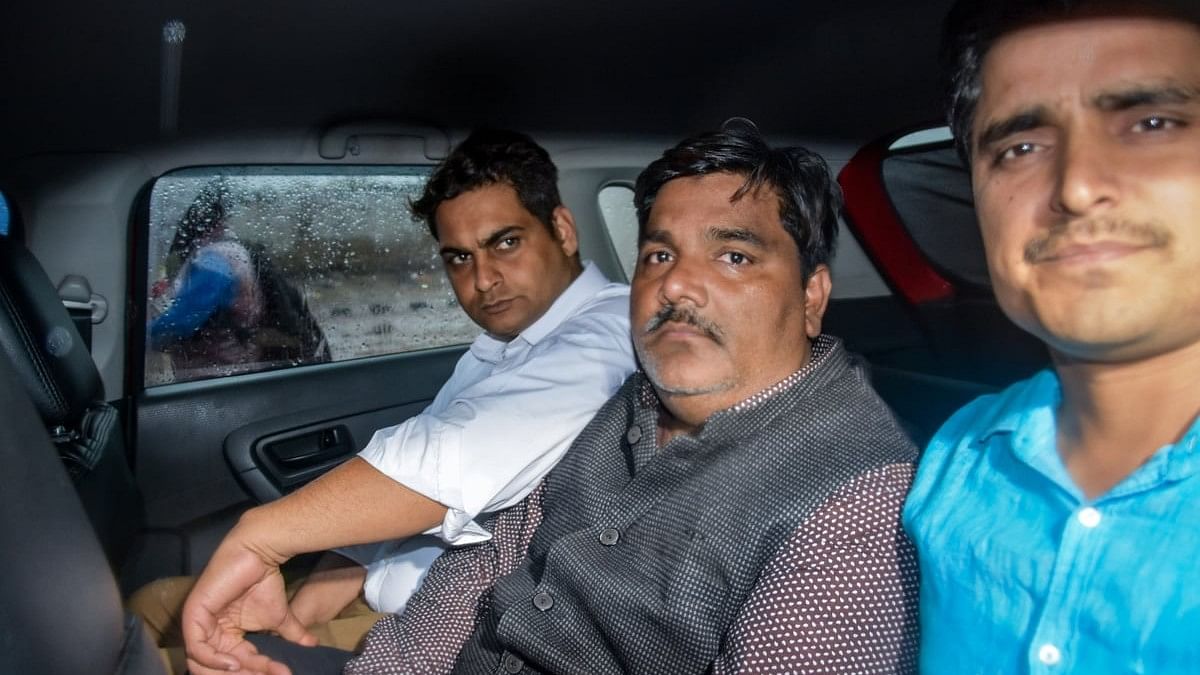
File photo of former AAP councillor Tahir Hussain (Centre).
Credit: PTI File Photo
New Delhi: Former AAP councillor Tahir Hussain on Friday argued before a court here that the WhatsApp chats Delhi Police has produced as evidence against him did not incite people to commit violence.
Additional Sessions Judge Sameer Bajpai was hearing arguments on framing charges against Hussain and others in a case related to the claims that there was a "larger conspiracy" behind the 2020 riots in the northeast part of the city that killed more than 50 people and left hundreds injured.
Hussain's counsel said that the prosecution had relied upon the evidence of some WhatsApp chats to show his involvement in instigating the riots but these messages did not ask or instruct people to engage in violence.
"Nowhere people are asked to pick weapons against the Indian government or its agencies," the counsel argued.
The advocate said that the chats discussed peaceful protests, and asked the court whether a chakka-jam (blockade) was a "terrorist activity".
The special cell of Delhi Police probing the case has used as evidence these chats along with statements of various witnesses and CCTV footage.
Earlier, on October 25, Hussain claimed that discussions on protests against the Citizenship (Amendment) Act (CAA) were not an act of insurgency or armed rebellion.
Twenty people including Hussain, activists Sharjeel Imam and Khalid Saif have been booked under the anti-terror Unlawful Activities (Prevention) Act and several provisions of the Indian Penal Code for allegedly being the "masterminds" of the February 2020 communal riots that claimed the lives of 53 people and left more than 700 injured.